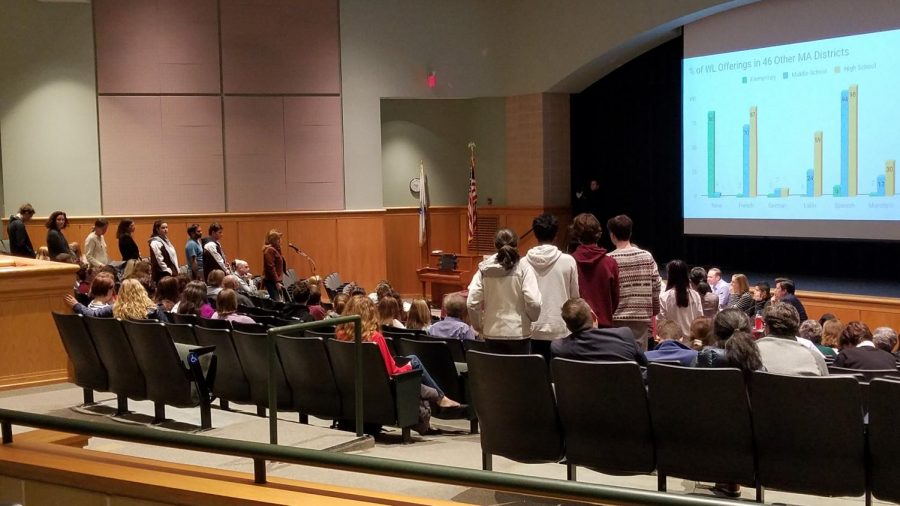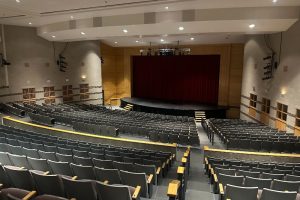1/13 School Committee Meeting further discusses cuts
Students, alumni, parents, and faculty line up in front of the microphones to give their opinions on the proposed budget cuts.
January 14, 2020
On Monday, January 13, the Westford School Committee met to discuss proposed budget cuts in the Latin and English departments, as well as other service reductions. The meeting lasted nearly four hours and featured speakers who would be directly affected by the proposed budget cuts, such as Sarah Bjorkman, Latin teacher at Westford Academy.
Most members of the School Committee expressed concerns about cutting Latin in the school system, due to the backlash from the students, alumni, faculty, and parents. The committee overall supports removing a 1.0 Spanish teacher from the middle school level, specifically Stony Brook.
The committee expressed concerns about solving a short term problem (Latin) and a long term problem (all five languages offered at Westford Academy). They elaborated on this further by saying that there is a current budget crisis that needs to be promptly addressed, but there are also long-term problems that need to be addressed in the future. Making cuts in all of the five languages offered at Westford Academy could be seen as a long term solution to the budget crisis.
The committee proposed eliminating the Foreign Exchange Coordinator position, which is currently occupied by German teacher Tim Welsh. Welsh expressed his qualms with the issue.
“I can’t imagine why such a successful program that has served the district at a mere fraction of a percent of the budget would even enter into the conversation for elimination,” Welch said.
Students and alumni shared their stories and the impact of the German exchange in hopes of leaving a lasting impression on the committee when they reach their final decisions. Bjorkman, who teaches AP as well as lower levels of Latin, defended the Latin department.
“We have kids for whom speaking in class […] is terrifying. Giving those kids an option of a nonspoken language gives them an opportunity for inclusion and for success. We have kids whose home lives aren’t great. We have kids who struggle in school both academically and socially. We have kids who are worried about the state of the world and the state of their schools. And some of those kids have said that studying a language in a culture that is so removed from their own world gives them an escape. […] We are truly a level playing field,” Bjorkman said.








